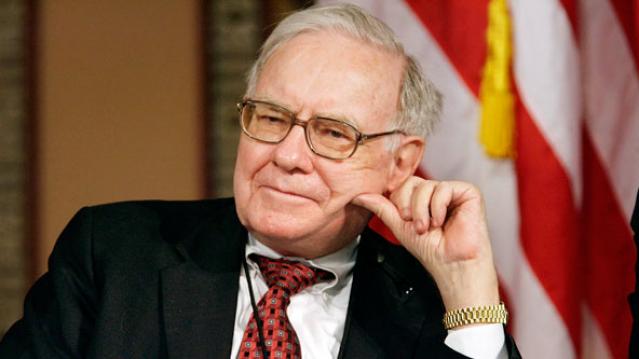The Phantom Billionaire Who’s Richer Than Warren Buffett

A practically unheard-of billionaire, Amancio Ortega, just blew past household name Warren Buffett to be the second-richest man in the world, according to Bloomberg. Microsoft founder Bill Gates, who is worth $85.5 billion, remains first.
Oretega, who has amassed a net worth of $71.5 billion, is the founding chairman of the Inditex fashion group, the world’s largest apparel retailer. Inditex is best known for its chain of Zara clothing and accessories shops, which had sales of $19.7 billion in fiscal 2014.
Related: Bill Gates Is the World’s Richest Man Again. Or Is He?
Worth noting is that Warren Buffett, whose net worth of $70.2 billion puts him at third place, would be in second-place if not for his philanthropic giving.
A native of Spain, Ortega refuses almost all interview requests and until 1999, no photograph of him had ever been published. However, Zara is not so low-profile. The world’s biggest fashion retailer operates over 6,600 stores in more than 88 countries.
Inditex has shown strong growth year over year. In March, it reported net profit up 5 percent from the previous fiscal year. In addition, the company said it planned to open up 480 more stores this year.
Related: America’s Highest Paid CEO Is Not Who You Think
Key to Ortega’s success has been keeping Zara’s manufacturing close to its home base in the ancient port city of La Coruña, rather than outsourcing production to China to cut costs. This allows Zara to act quickly on new trends and put new products into stories right away. Zara shops receive new shipments of clothing twice a week, virtually unheard of among retail stores.
If Inditex brands continue to grow and Zara’s popularity extends to millennials and beyond, the mysterious billionaire’s wealth could eventually push him to number one on the list.
Stat of the Day: 0.2%

The New York Times’ Jim Tankersley tweets: “In order to raise enough revenue to start paying down the debt, Trump would need tariffs to be ~4% of GDP. They're currently 0.2%.”
Read Tankersley’s full breakdown of why tariffs won’t come close to eliminating the deficit or paying down the national debt here.
Number of the Day: 44%

The “short-term” health plans the Trump administration is promoting as low-cost alternatives to Obamacare aren’t bound by the Affordable Care Act’s requirement to spend a substantial majority of their premium revenues on medical care. UnitedHealth is the largest seller of short-term plans, according to Axios, which provided this interesting detail on just how profitable this type of insurance can be: “United’s short-term plans paid out 44% of their premium revenues last year for medical care. ACA plans have to pay out at least 80%.”
Number of the Day: 4,229

The Washington Post’s Fact Checkers on Wednesday updated their database of false and misleading claims made by President Trump: “As of day 558, he’s made 4,229 Trumpian claims — an increase of 978 in just two months.”
The tally, which works out to an average of almost 7.6 false or misleading claims a day, includes 432 problematics statements on trade and 336 claims on taxes. “Eighty-eight times, he has made the false assertion that he passed the biggest tax cut in U.S. history,” the Post says.
Number of the Day: $3 Billion

A new analysis by the Department of Health and Human Services finds that Medicare’s prescription drug program could have saved almost $3 billion in 2016 if pharmacies dispensed generic drugs instead of their brand-name counterparts, Axios reports. “But the savings total is inflated a bit, which HHS admits, because it doesn’t include rebates that brand-name drug makers give to [pharmacy benefit managers] and health plans — and PBMs are known to play games with generic drugs to juice their profits.”
Chart of the Day: Public Spending on Job Programs

President Trump announced on Thursday the creation of a National Council for the American Worker, charged with developing “a national strategy for training and retraining workers for high-demand industries,” his daughter Ivanka wrote in The Wall Street Journal. A report from the president’s National Council on Economic Advisers earlier this week made it clear that the U.S. currently spends less public money on job programs than many other developed countries.

